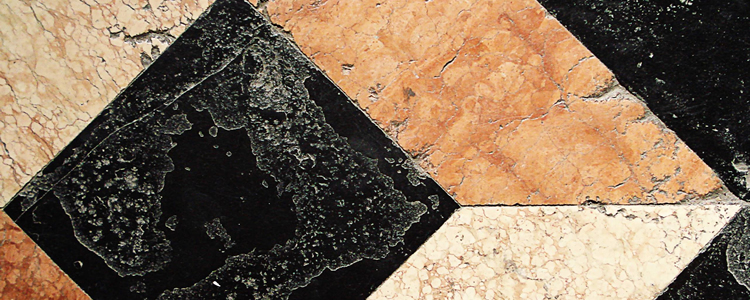
General cleaners not specifically formulated for natural stone or tile are never recommended. These can breakdown the sealer, thereby removing its protective properties and making the stone and tile grout susceptible to stains. Worse yet, many cleaning products, including those that contain lemon, vinegar, bleach or ammonia can etch away the polish, discolor the surface, or even scratch your stone.
Many cleaners have what is called a chelating agent in them. This agent breaks down and dissolves minerals in hard water. Since all stone is made up of minerals, these types of cleaners will dissolve and cause streaks over prolonged use.
For best results, have your hard surfaces professionally cleaned and sealed at minimum every 2 years and always use a neutral stone and tile cleaner.
Stone Sealer and Stone Enhancer
When it comes to Natural Stone, there are many different choices when it comes to sealer and enhancer. Each installation has unique requirements and Janssen’s Certified technicians are experts when it comes to choosing the sealer that is right for each installation.
Grout Sealer
The application of sealer will help prevent every day soil from penetrating deep into the pores of the grout and becoming permanent stains. Sealer is designed to help protect and repel oil and water based stains. To maintain the effectiveness of the sealer experts recommend periodic professional maintenance cleanings and re-application of sealer regularly.
COMMON NATURAL STONE TYPES
- Limestone
Limestone is similar to marble in that it is sensitive to acids and household cleaners containing chelating agents. It varies in hardness and sometimes will have fossil imprints. Janssen’s offers cleaning, honing, polishing, and sealing of limestone. For best results, have your limestone sealed and use a neutral stone cleaner. - Marble
Marble is softer and more porous than most stone; it not only scratches easily, but also etches easily. Marble is sensitive to acids in many different food items (including citrus products, sodas, etc.) and the chelating agents in household cleaners. See the section marked maintenance for more on chelating agents. Janssen’s offers rust and stain removal as well as cleaning, polishing, and sealing of marble floors and countertops. For best results, have your marble sealed and use a neutral stone cleaner. - Travertine
Travertine is limestone that has been formed by hot springs. Water movement caused erosion of the stone creating numerous holes of varying sizes. Travertine is similar to marble in that it can be polished, and is sensitive to acids and household cleaners with chelating agents. Janssen’s offers cleaning, honing, polishing, sealing and enhancement sealers for Travertine. For best results, have your travertine sealed and use a neutral stone cleaner. - Slate
Slate is a fine-grained metamorphic stone usually black, gray or green. Slate is not acid sensitive but prolonged use of household cleaners with chelating agents can cause streaking and dullness. Janssen’s offers slate cleaning, sealing or enhancers that bring out the deep rich natural color of slate. For best results, have your slate sealed and use a neutral stone cleaner. - Granite
Granite is an extremely hard natural stone and is not as porous as other natural stones. Though not acid sensitive, prolonged use of household cleaners with chelating agents will cause streaking and can be a homeowner’s nightmare. Janssen’s offers cleaning and sealing of granite countertops and floors. For best results, have your granite sealed. - Terrazzo
Terrazzo appears more uniform than most natural stones and is available in tile form or by a pouring application on the slab. Terrazzo is a mixture of Portland cement and marble chips; these chips can range in size from a fraction of an inch to as large as several inches. Janssen’s offers Terrazzo cleaning, polishing and sealing. For best results, have your terrazzo sealed and use a neutral stone cleaner.
